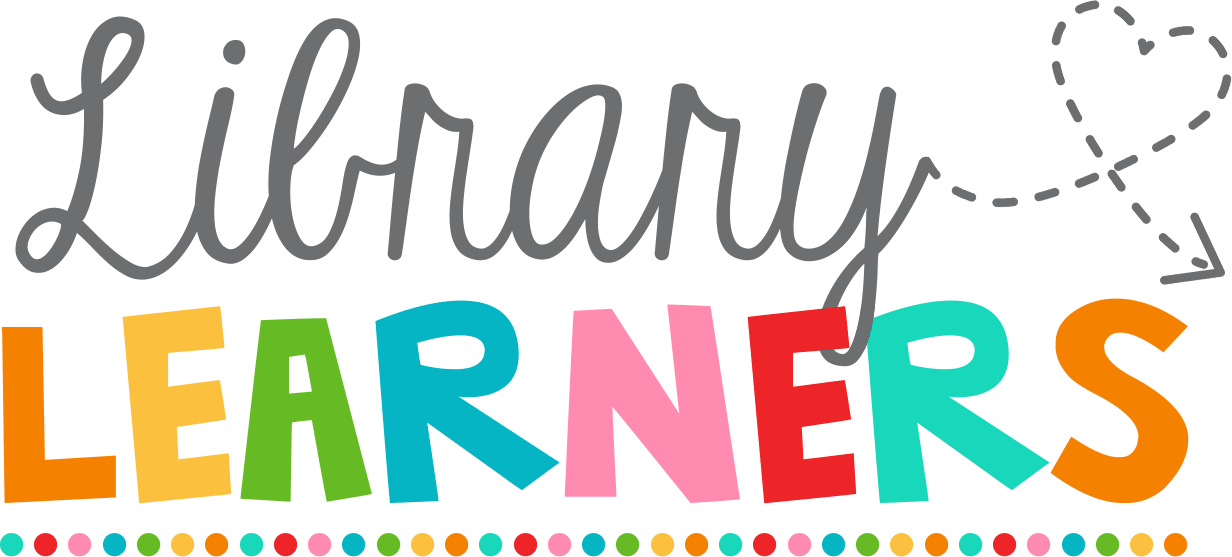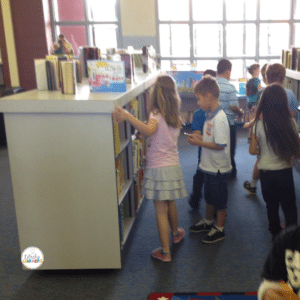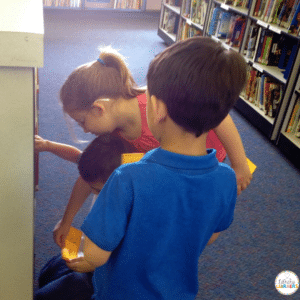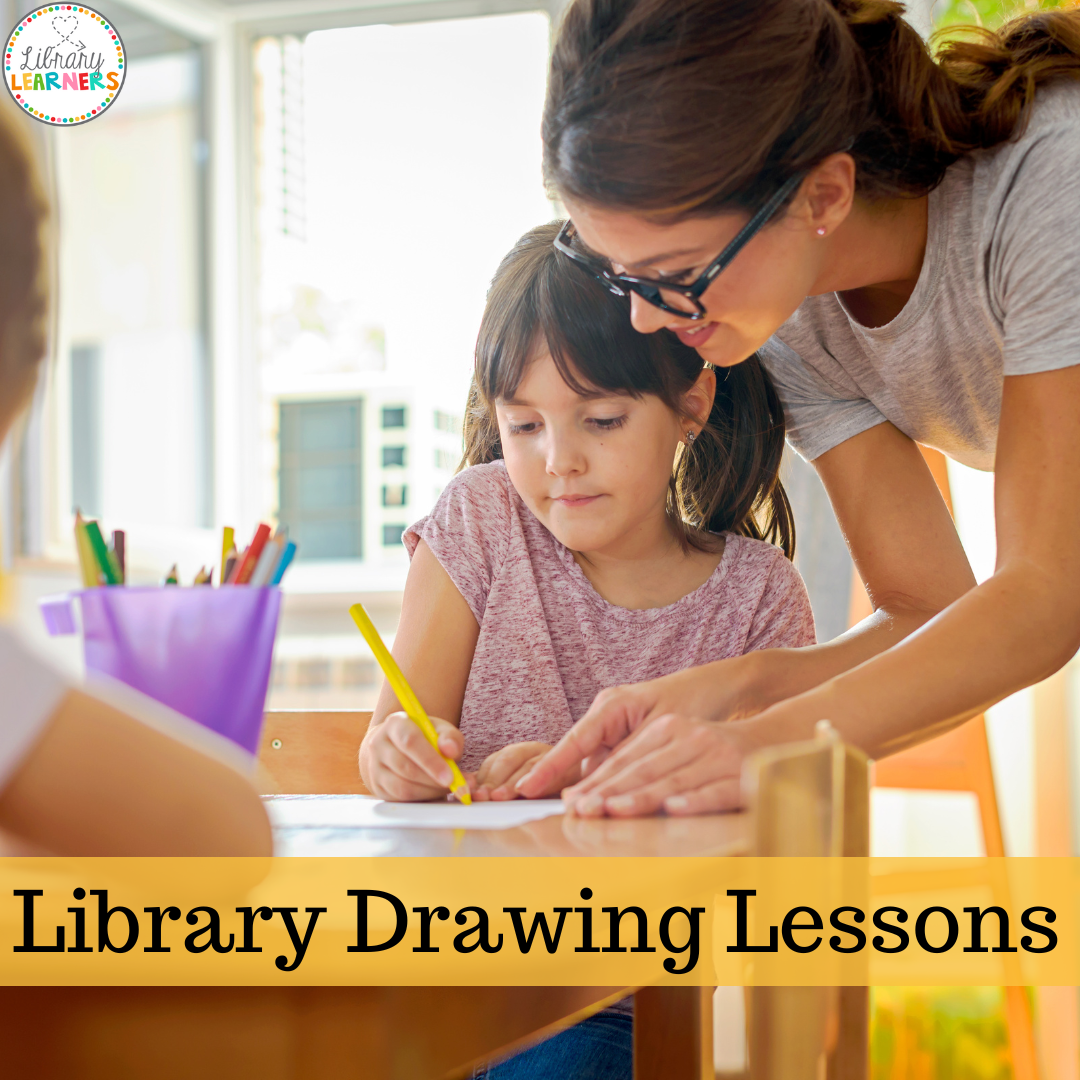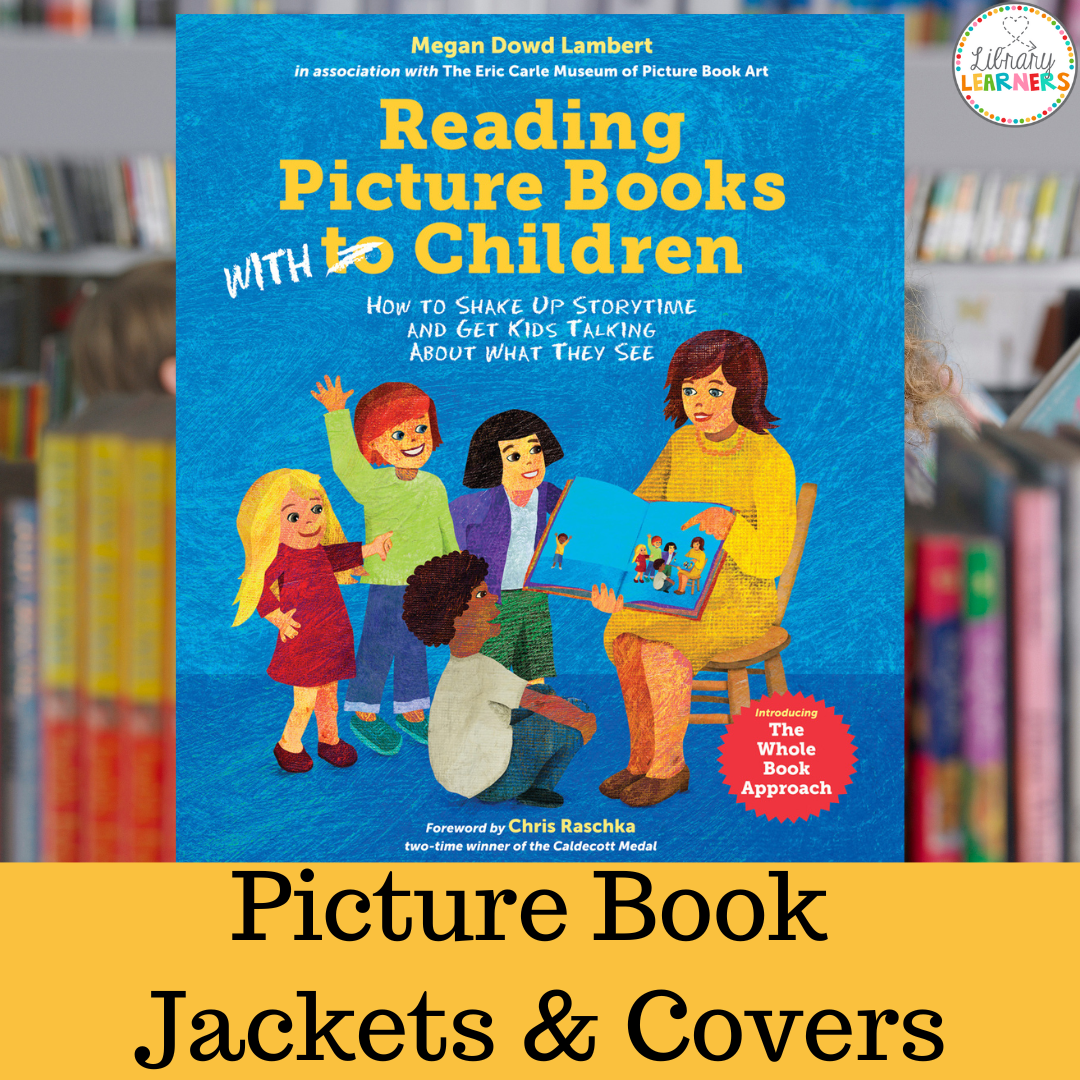5 Powerful Reasons to Teach with Library Scavenger Hunts
Have you ever taught with a library scavenger hunt? I originally tried this activity because I thought it would be a fun change of pace for our elementary school students. I quickly discovered that a library scavenger hunt can be a powerful teaching tool, and now I highly recommend them for every school librarian.
What is a library scavenger hunt? You (the librarian) create cards or pages with books you want students to find in your school library, depending on your goal for that library lesson. Students work alone or in teams to find those books and then return to a central place when they’ve completed all of their cards or all of the items on their list.
Movement with Library Scavenger Hunts
One of the most obvious benefits of a library scavenger hunt is that students get to move around. It has been proven in numerous studies that students learn more effectively when they are moving AND that students are more engaged in learning that involves physical movement.
According to Annie Murphy Paul, author of “The Extended Mind: The Power of Thinking Outside the Brain,” the benefits of movement are well-documented: “physical activity improves students’ focus, retention, memory consolidation, creativity and mood. Movement breaks – from recess to a short dance party to doing standing stretches at their desks – boost students’ mental sharpness.” An article in The Kappan states: “Overall, we found that students were significantly more excited by, engaged in, and focused on the lessons that integrated movement than those that did not.” (Originally published in April 2017 Phi Delta Kappan 98 (7), 34-37. © 2017 Phi Delta Kappa International. )
What does the day look like in your school’s classrooms? Are students given movement breaks? Or are they mostly sitting still at their desks until they come to your library?
Collaboration with Library Scavenger Hunts
We want our students to learn how to collaborate with others, working together to overcome obstacles and achieve a common goal. I think we’ve all seen students struggle with social skills after the isolation of distance learning. We need to provide opportunities for students to work as a team, to look each other in the eye and talk to each other. Library scavenger hunts are the perfect learning activity to practice the skill of collaboration!
As stated by Jerry Colber in Ed Tech Magazine: “Collaborative education also supports social-emotional learning. When working together, students practice good communication, learn to work within a team and enhance their abilities to compromise and lead. Instilling these qualities at the K–12 level prepares students for today’s teamwork-based workplace environments.”
Differentiation with Library Scavenger Hunts
Library scavenger hunts allow ALL students to participate, simply by pairing your struggling readers with stronger readers. When working with a partner, the struggling reader will explore books and parts of the library that they may not have seen before, increasing their confidence in your library classroom. The picture clues paired with the text on your scavenger hunt cards allow students of different reading abilities to find the target titles successfully.
I found that when our classes came to the library, our classroom teachers already had student pairs established for any activities that required working with a partner. If your special needs students come to the library with a paraprofessional, they can also be helpful for pairing students who need help with students who are helpful and kind.
Gamified Learning with Library Scavenger Hunts
You probably don’t need any studies to tell you that students are more engaged in learning when they’re playing a game. According to research cited in an Edutopia article, “using games in teaching can help increase student participation, foster social and emotional learning, and motivate students to take risks.” When your library lesson is a game, students will not be asking you if they have to participate. They will be excited to play, especially if they are on teams.
Don’t you want your students to think of your library as a fun and magical place? Learning through games, like scavenger hunts, can help make that happen.
Observations during Library Scavenger Hunts
Many librarians have given me feedback that they choose a library scavenger hunt for the class period when they are scheduled to be observed by a school administrator. I know that different states and districts use different observation standards, and I don’t know what your school requires for your observation. In general, I’ve found that my school principals were delighted to see students moving through the library purposefully, talking animatedly with their team, and working together to learn about a topic that could ordinarily seem a little dry, like the Newbery Medal.
More Library Scavenger Hunts
Are you ready to give library scavenger hunts a try? Although you can certainly create your own cards or lists, I’ve already created these, which are available in my TPT shop.
- Nonfiction Library Scavenger Hunt Cards with QR Codes Printable and Digital
- Hispanic Heritage Library Scavenger Hunt and Lessons
- Black History Library Lessons & Scavenger Hunt
- Book Fair Scavenger Hunt Task Cards
- Newbery Library Lessons & Scavenger Hunt from 2000
- Women’s History Library Lessons & Scavenger Hunt | Digital and Printable
- Biography Scavenger Hunt Editable
